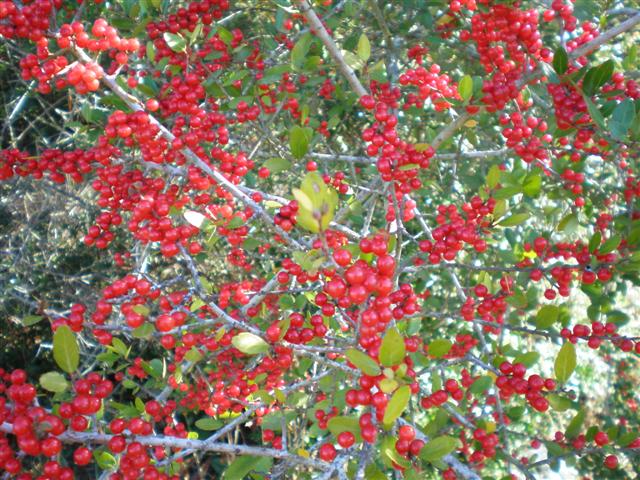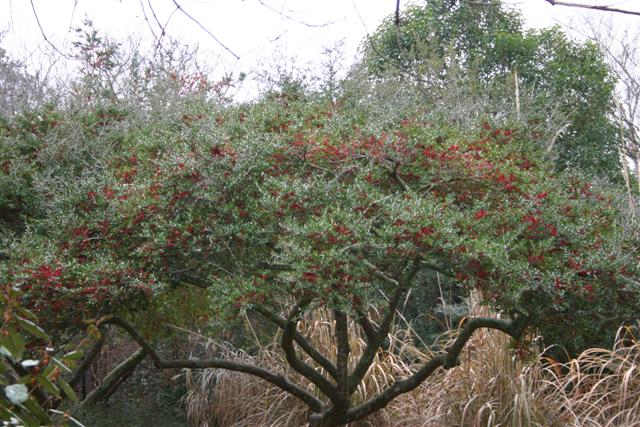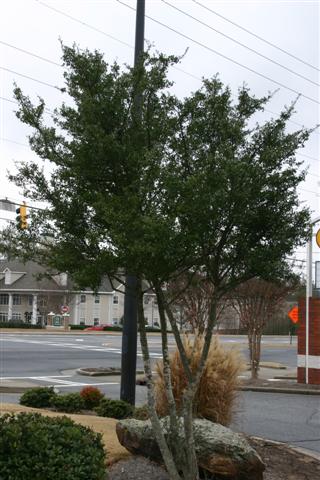Georgia Gardener Newsletter Cool Plant: December 18, 2008
| Yaupon Holly |
| Ilex vomitoria |

|
Need design help?
Or help "drought-scaping?"
Check out our Design Services.
We're also offering a 10% discount
for December & January Appointments
|
Species Native Range: Southeastern U.S.
Hardiness: USDA Zones 7-10
Mature Size: Varies; 20-25 feet tall and 10-15 feet wide
Exposure: Sun to partial shade
Soil: Wet to average and dry; salt tolerant
Drought Tolerance: Excellent
Ease of Culture: Easy
Yaupon hollies make excellent landscape plants. Considered one of the small-leafed hollies because the leaves are less than
1.5 inches long, are slightly toothed and possess no nasty, sharp points, they are available in a variety of cultivars
that can be used to fit
anywhere in the garden. While the straight species reaches small tree stature, dwarf varieties such as 'Nana', 'Stokes Dwarf' and
others are small enough to be planted along foundations, even under windows.
Like most hollies, yaupons are dioecious - separate male and female plants. The bright red almost translucent berries are
borne only on pollinated female plants. To ensure pollination, plant one or more males nearby. The berries usually persist
through the winter until they are finally eaten by birds.
Yaupon hollies can be used as hedges as they tolerate pruning well. Older, larger varieties do well to have their lower
limbs removed to expose the smooth mottled gray bark. Yaupons are extremely fast growing plants.


Plant yaupon hollies in full sun to partial shade. They tolerate a wide range of soils including wet and poorly draining. They
are salt tolerant and can be used in coastal landscapes. Yaupon hollies are much more heat tolerant than many of the
Asiatic hollies. Because they tolerate pruning so well, they can be shaped for formal
gardens or left unpruned for informal or natural gardens. In optimal growing conditions, they can sucker.
I've been told that the species epithet (vomitoria) derives from the fact that the leaves can cause vomiting and that they
were used by young Native American males as an intoxicant thus proving that foolish juvenile behavior isn't necessarily limited
to college campuses.
Sources
Yaupon hollies can be found at many local retail nurseries.
Copyright © 2008 by Theresa Schrum - All rights reserved
No part of this website may be reproduced without the expressed written permission of Theresa Schrum



